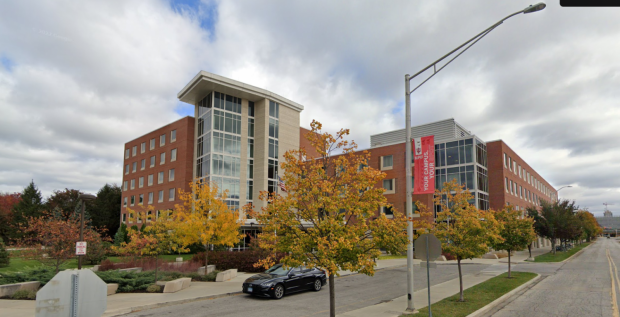Indiana University's tranquil Dunn Meadow, a 20-acre green space on the Bloomington campus, has long been a symbol of free expression. Since 1969, it has served as an official assembly ground for student protests, embodying the university's commitment to fostering open dialogue and dissent. However, recent events have thrust this peaceful setting into the spotlight, igniting a fiery debate over free speech rights and administrative overreach.

(Photo : WIKIMEDIA COMMONS / Sperjohn)
A Change in Policy
The controversy began when a group of student protesters sought to set up a pro-Palestinian encampment in Dunn Meadow. The night before their planned demonstration, university administrators, including President Pamela Whitten and Provost Rahul Shrivastav, learned of the students' plans. In response, Shrivastav formed an ad-hoc committee and swiftly changed the assembly ground policy. The new policy prohibited the "temporary or permanent installation of outdoor structures" without prior administrative approval, specifically targeting the use of signage and tents.
The policy change was not widely communicated to the IU community. Instead of a university-wide email or public announcement, the new policy was quietly updated on the undergraduate events website, and a physical copy was posted in the grass of Dunn Meadow. This lack of transparency fueled accusations of censorship and raised concerns about the university's commitment to free speech.
Backlash and Arrests
The policy change led to immediate backlash from students, faculty, and free speech advocates. When students attempted to set up the pro-Palestinian encampment the following morning, they were met with resistance. University leaders called in Indiana State Police to dismantle the encampment, leading to a confrontation with student protesters. Reports surfaced of police using aggressive tactics, including dragging, pushing, and zip-tying students. In total, 33 students were arrested for trespassing, and dozens more were banned from campus.
Critics of the policy change argue that it infringes on the fundamental right to peaceful assembly and protest. Steve Sanders, a constitutional scholar at IU's Maurer School of Law, described the policy change as a violation of the groups' right to free expression. He emphasized that while rules can be changed, they should not be altered to target or disadvantage specific groups based on their speech or beliefs.
Campus Reaction and Future Implications
The backlash to Indiana University's policy change extends beyond the immediate incident at Dunn Meadow. Faculty, free speech advocates, and local officials have criticized the university's actions, with some calling for the policy change to be revoked. Former Bloomington Mayor John Hamilton labeled the policy change "inadvisable and likely unconstitutional," highlighting the broader implications of the university's decision.
The controversy at IU is not an isolated incident. It reflects a broader trend on college campuses where administrators are grappling with how to balance free speech rights with maintaining order and safety. A recent survey of college and university presidents found that over 20% believe recent world events have stressed their campus speech policies, indicating a growing concern among higher education leaders.
The debate over free speech on college campuses is not new, but it has taken on renewed significance in recent years. The changing landscape of activism and protest, coupled with increased scrutiny from lawmakers and donors, has forced universities to reevaluate their approach to free expression. The case of Indiana University serves as a cautionary tale, highlighting the importance of transparency, dialogue, and respect for differing viewpoints in preserving the university as a marketplace of ideas.
Indiana University's policy change at Dunn Meadow has sparked a contentious debate over free speech and administrative authority. The incident serves as a reminder of the challenges universities face in upholding the principles of free expression while ensuring the safety and well-being of their communities. As the debate continues, it is essential for universities to uphold their commitment to free speech and open dialogue, even in the face of controversy and protest.
RELATED ARTICLE: Clash Between Politics And Education At Indiana University Threatens Academic Freedom








